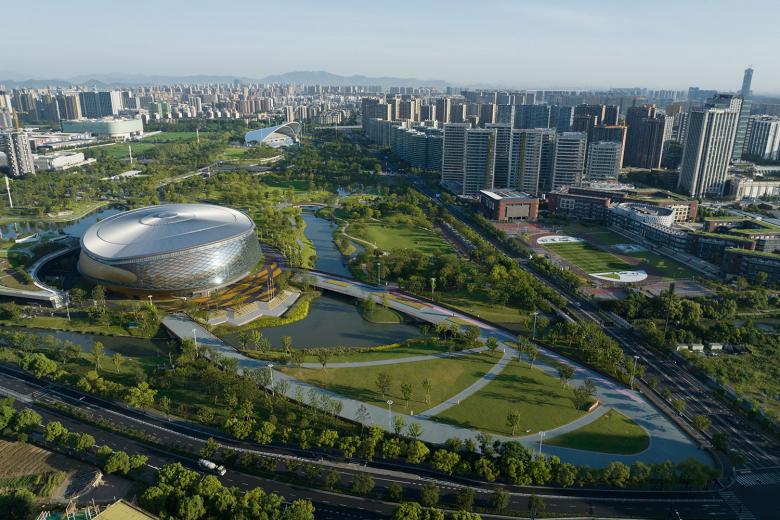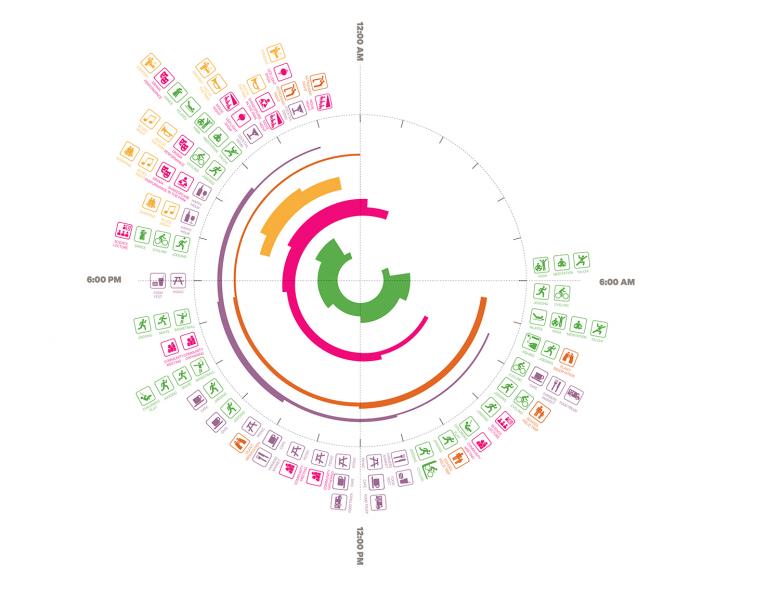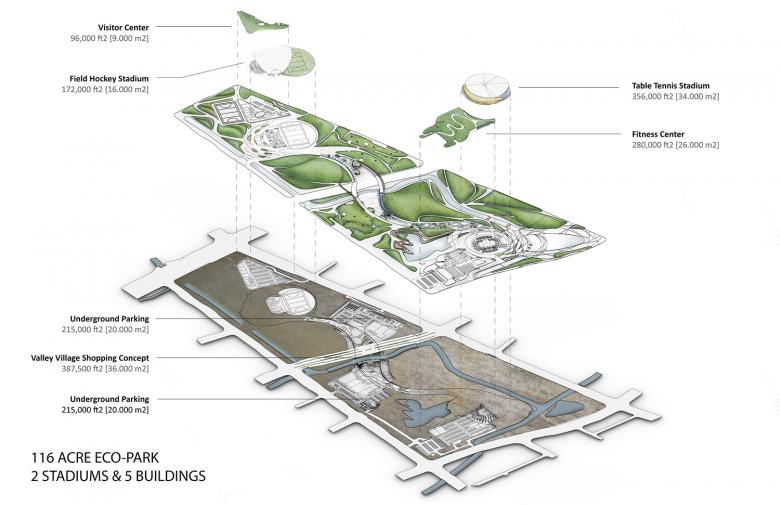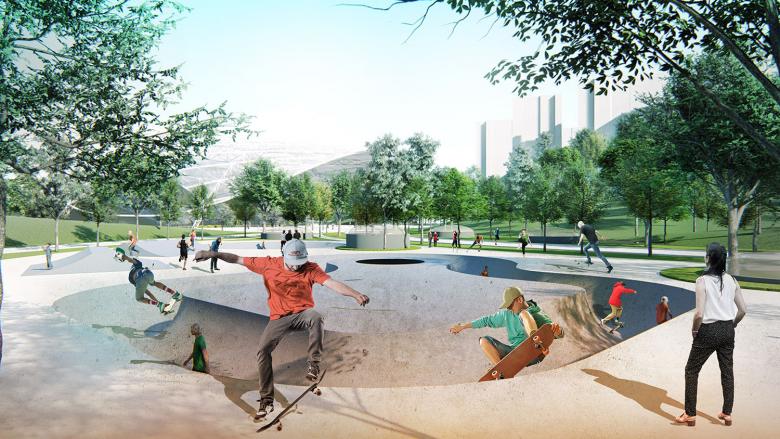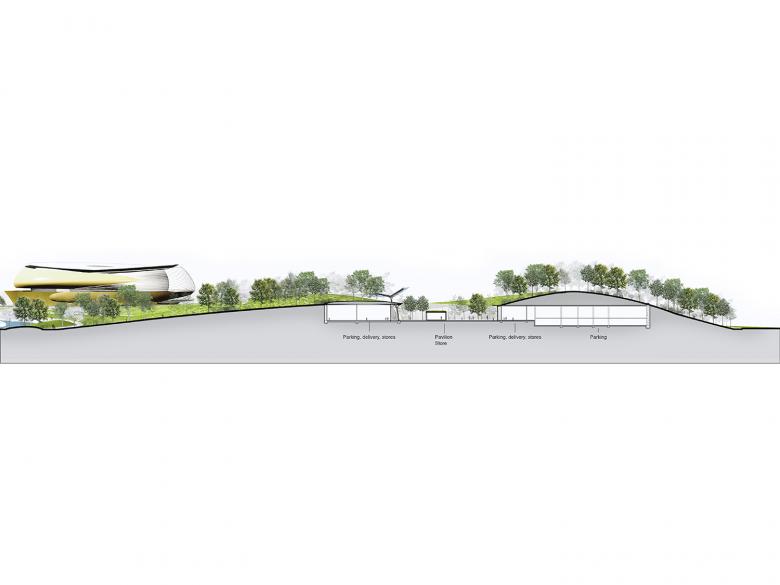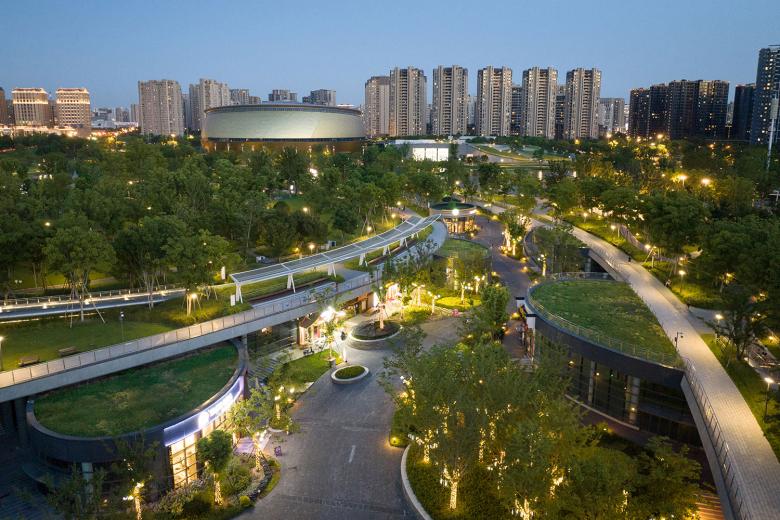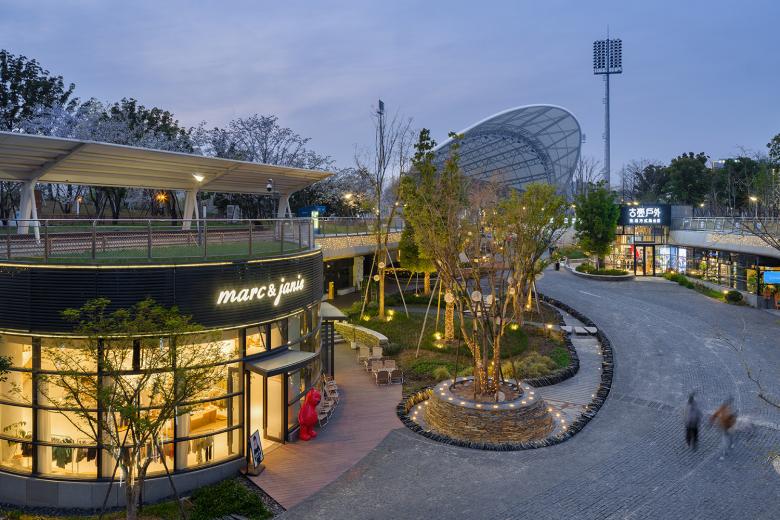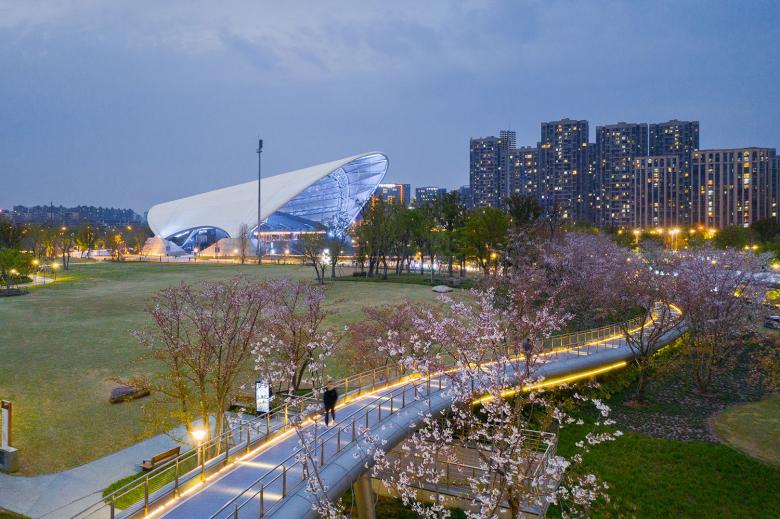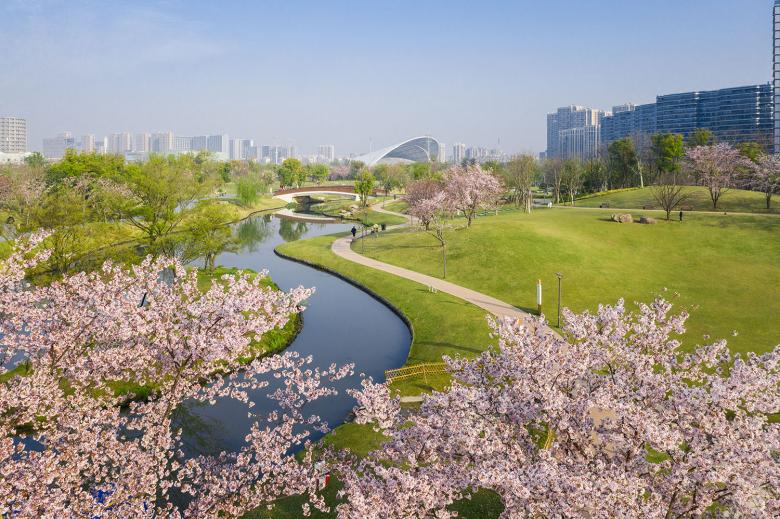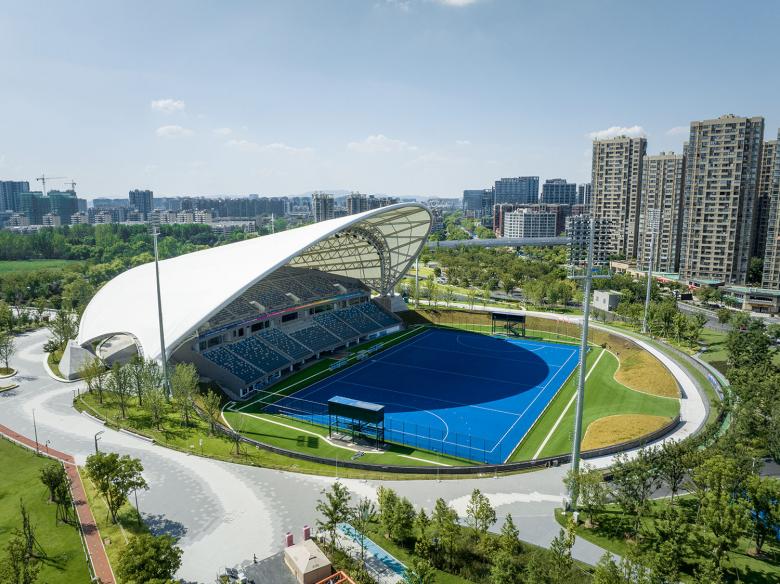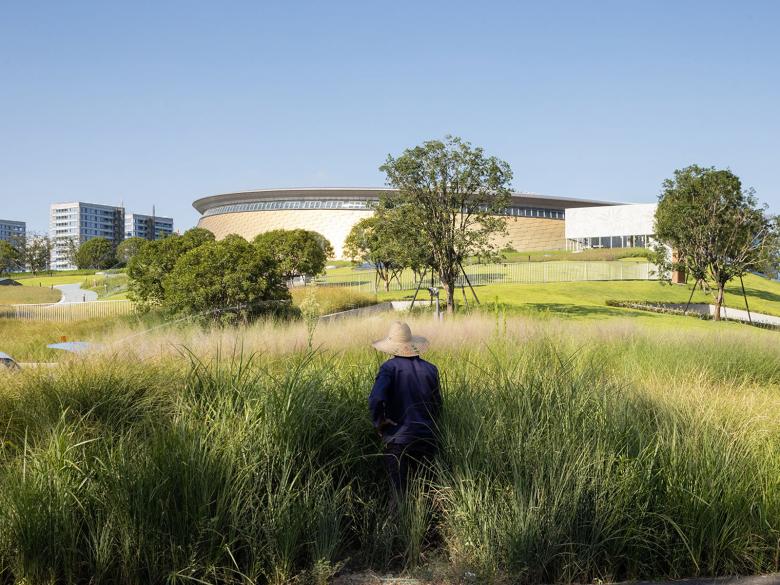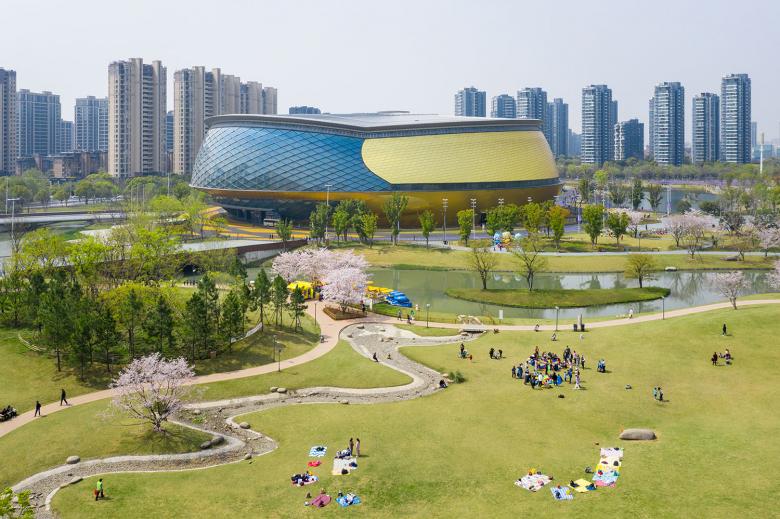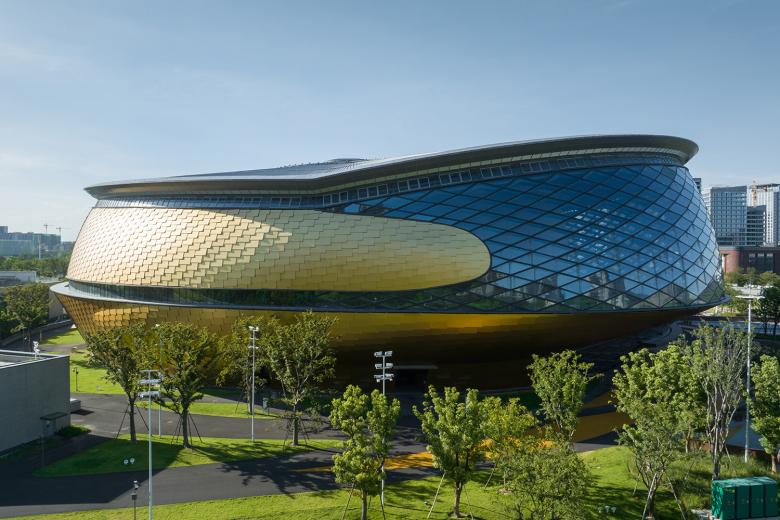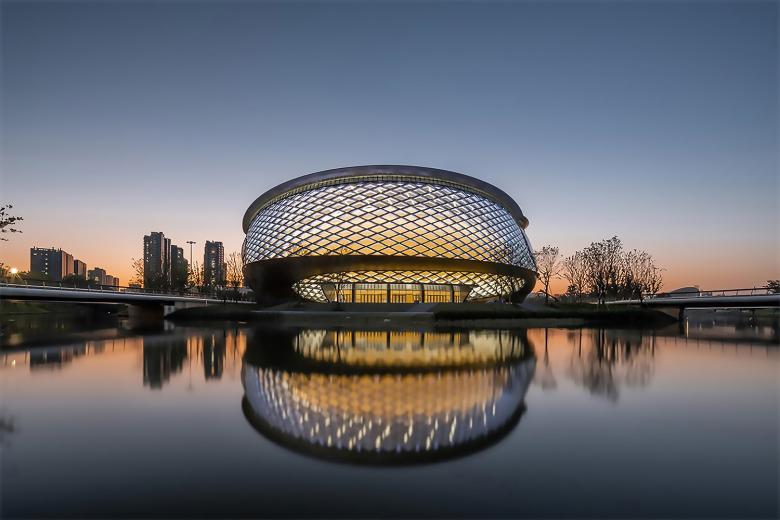2023 Asian Games Masterplan and Hybrid Buildings
Hangzhou, China
- Parks + Open Spaces
- Stadiums
- Sports Complexes
- Shopping Centers + Malls
- Masterplan
- Urban Developments
- Architectural Designers
- Archi-Tectonics
- Location
- 310000 Hangzhou, China
- Year
- 2023
- Landscape Design
- !melk
- Structures
- Thornton Tomasetti
- Mechanical Engineering
- Ryan Soames Engineering
- Transport Planning
- Mobility in Chain
- Local Architect
- Zhejiang Province Institute of Architectural Design and Research (ZIAD)
CHALLENGE
Selected from a group of 5 international firms, Archi-Tectonics won this invited competition for the 2022 Asian Games in Hangzhou/ China. The project faced three major challenges. First, it had to transform the 1.6 kilometer site bisected by a major road and river into an active public eco landscape. Second, the design had to offer facilities tailor-made for the Games events that would remain useful after they ended, as well as an expansive fitness center and exhibition / visitors center. Third, it had to set the course for sustainable, ecologically conscious development in Hangzhou, one of China’s densest and fastest-growing cities.
INNOVATION
Archi-Tectonics incorporated 7 buildings into an ECO landscape where the requirement was to have 85% park. The 2 stadiums on opposite ends of the site serve as anchors & generators of new activities, and are connected by a pedestrian shopping valley that passes under the road and river. Named the Valley Village Mall, this pedestrian spine is lined with shops, restaurants, cafes, kiosks, and outdoor gathering areas. To transition the park after the games, the design creates two hybrid stadiums, and activities such as shopping, hiking, birdwatching, boating, outdoor concerts, and major cultural events.
IMPACT
Using a zero-earth landscape strategy, the excavated earth from the restored wetlands and valley is re-used to create a rolling hillscape with porous pavement. These interventions turn the site into a “Sponge City” that collects, filters, and reuses rainwater for water features, irrigation, plumbing, heating and cooling. The park extends the activity of the city streets into the landscape to integrate the much-needed green heart to the area, strengthens and diversifies the ecology its entire context, and creates a new center of public life in Hangzhou that will be used long after the Games end. The design is well-equipped to house activities like nature walks, basketball and skateboarding, shopping, picnics, waterfront dining, community events, and more.
CREDITS
Year: Competition won: 2018, Construction phase: 2020, Substantial completion: 2021
Location: Hangzhou, China
Client: Government: Gongshu District City Village Reconstruction Department
Project Type: 16-acre eco park with 2 stadiums, shopping mall, visitors and fitness centers, and 2 parking garages for the 2022 Hangzhou Asian Games
Size: 46.7 hectare park, 35,000 m2 Table Tennis stadium (5000 seats), 15,000 m2 Field Hockey stadium (5000 seats), 29,000 m2 commercial mall, 23,00 m2 fitness center, and 68,000 m2 underground parking, all with green roofs and natural ventilation
Design Team: Principal in charge: Winka Dubbeldam, Assoc. AIA | Project Leader: Justin Korhammer | Main Designers: Paul Starosta, Max Boerman | Archi-Tectonics Team: Dongliang Li, Maud Fonteyne, Soyeon Cha, Boden Davies, Alex Bahr, Dan Rothbart, Bowen Qin
Consultants:
Structural Engineers: Thornton Tomasetti
Transport Planning: Mobility in Chain, Italy
Mechanical Engineers: Ryan Soames Engineering
Collaborators: !melk Landscape Design | UAD Research group, Hangzhou, China
Renderings and Diagrams: Archi-Tectonics | MIC | !melk
Animation: !melk
Related Projects
Magazine
-
Being Arthur Erickson
Today
-
NEOM Updates
1 day ago
-
Mind the Gap
1 day ago
-
Watchtower Einderheide
3 days ago
